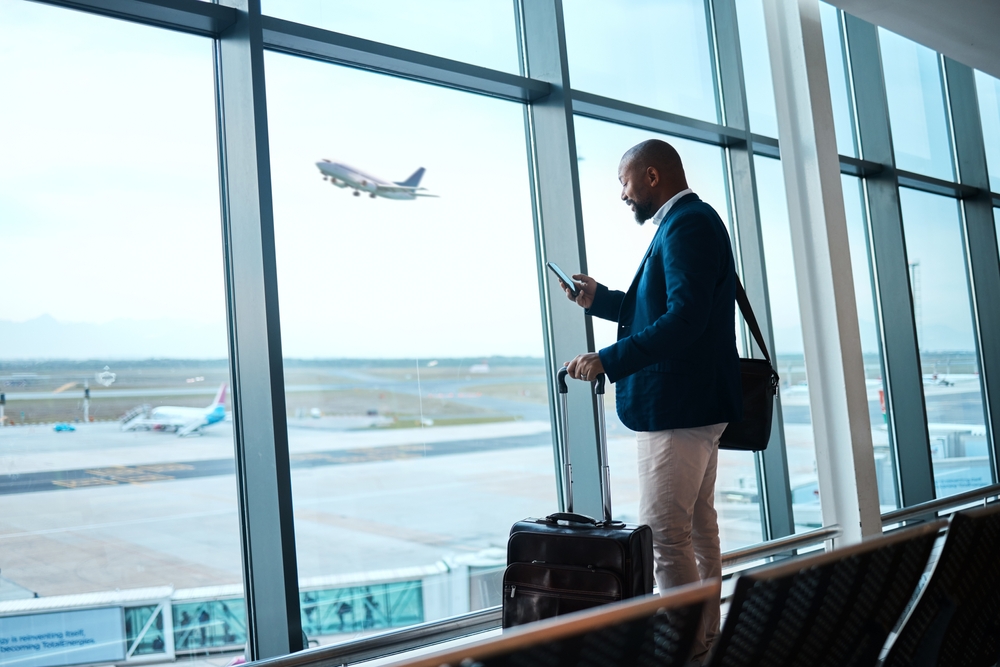Long-haul flights promise adventure, exploration or long-awaited reunions — but they come with a cost. The human body is not built to sit idle for hours in a pressurized cabin 35,000 feet above the ground. Behind the excitement of reaching your destination is a string of physiological challenges that your body endures in silence.
This guide reveals what really happens to your body during long flights, how these changes affect your health and what you can do to protect yourself in the skies.
Dehydration begins almost immediately
The air in airplane cabins is significantly drier than what we experience on the ground. With humidity levels often below 20%, your body loses moisture faster than you realize. The dry environment saps moisture from your skin, eyes, nose and throat — leading to discomfort, irritation and a parched feeling.
More importantly, dehydration affects the function of nearly every system in the body. Your blood thickens, your kidneys struggle to retain balance and fatigue can set in more quickly. It also makes you more prone to jet lag and can impair digestion.
What you can do: Bring a large bottle of water and sip consistently throughout the flight. Avoid alcohol, caffeine and salty snacks, all of which worsen dehydration. Opt for hydrating foods like fruits or order soup when available.
Blood flow slows and circulation suffers
One of the most serious concerns on a long flight is deep vein thrombosis (DVT), a condition where blood clots form in the deep veins of your legs. The risk increases when you remain seated for hours without moving, especially in cramped quarters.
Restricted movement slows circulation, and with gravity working against you, blood can pool in your lower extremities. Symptoms may not appear until after the flight, and in rare but dangerous cases, clots can travel to the lungs — a life-threatening condition known as a pulmonary embolism.
What you can do: Stretch your legs every hour. Flex and point your toes, rotate your ankles or take a quick walk down the aisle. Wear compression socks to promote circulation and avoid crossing your legs for extended periods.
Oxygen levels drop and fatigue sets in
The air pressure in an airplane cabin is equivalent to being 6,000-8,000 feet above sea level. That means oxygen levels are lower, which can leave you feeling tired, dizzy or lightheaded — especially if you already have respiratory conditions or anemia.
This thin air also places extra stress on your cardiovascular system. Your heart must work harder to deliver oxygen throughout the body, contributing to fatigue, restlessness and headaches.
What you can do: Try deep breathing techniques during the flight to maximize oxygen intake. If you have a medical condition, consult your doctor before flying to determine if supplemental oxygen is needed.
Your digestive system slows down
Ever feel bloated, gassy or constipated during a long flight? Blame the combination of cabin pressure, prolonged sitting and disrupted meal times. Gas expands at high altitudes, and that can lead to discomfort and visible bloating. Reduced movement also slows your metabolism and digestion, making your gut sluggish.
Add in unfamiliar or highly processed in-flight meals, and your digestive system becomes even more sluggish — setting you up for discomfort long after you land.
What you can do: Eat light before and during the flight. Choose foods rich in fiber and avoid carbonated beverages. Moving periodically helps your digestive system function more effectively.
Jet lag alters your sleep-wake cycle
Crossing time zones on a long flight throws off your circadian rhythm, the body’s natural 24-hour clock. Jet lag can leave you feeling groggy, irritable or mentally foggy for days. Sleep disruption affects everything from your mood and focus to your immunity and digestion.
It’s not just fatigue — chronic disruption of sleep cycles may increase the risk of metabolic and cognitive issues over time, especially for frequent travelers.
What you can do: Adjust your schedule a few days before departure to align with your destination. Expose yourself to sunlight after landing to reset your internal clock and avoid naps that throw off nighttime sleep.
Your immune system takes a hit
Airplanes are enclosed spaces with recycled air, making them breeding grounds for viruses and bacteria. While modern filtration systems help, you’re still sharing close quarters with hundreds of people. The dry air also dries out your nasal passages, reducing your body’s ability to trap and expel germs.
Combined with the physical stress of flying and changes in your sleep, your immune defenses are weaker than usual — leaving you more vulnerable to colds, flus or worse.
What you can do: Use hand sanitizer regularly and wipe down your tray table and seatbelt. Stay hydrated and bring vitamin C-rich snacks like oranges. Wearing a mask is also a simple and effective barrier when you’re surrounded by coughing or sneezing passengers.
Skin and eye irritation from dry air
Dry cabin air can strip moisture from your skin and eyes, leaving them dry, flaky or irritated. Contact lens wearers are especially prone to discomfort. You may also notice puffiness around the eyes due to fluid retention caused by prolonged sitting.
What you can do: Use a hydrating facial mist and apply moisturizer before and during the flight. Remove contact lenses and switch to glasses. Lubricating eye drops can provide much-needed relief.
Mental clarity and mood effects
The monotony of a long flight, poor air quality, dehydration and disrupted sleep patterns all affect brain function. It’s not uncommon to feel mentally foggy, anxious or irritable during and after a lengthy flight. The longer you’re in the air, the more your cognitive abilities decline — especially if you’re also battling jet lag and lack of movement.
For some travelers, the lack of personal space and constant noise can heighten stress, especially if flying triggers anxiety to begin with.
What you can do: Bring noise-canceling headphones, soothing music or a mindfulness app. Stay mentally stimulated by reading, doing puzzles or journaling. Avoid excessive screen time that strains your eyes and overstimulates your brain.
Hormonal disruption affects hunger and mood
Air travel affects your hormones. The disruption to your circadian rhythm alters melatonin levels (the sleep hormone) and cortisol (the stress hormone). This imbalance can mess with your appetite, mood and metabolism.
You might notice a strange pattern: you’re ravenous at odd hours or have no appetite at all. This is because the signals that govern hunger are also affected by time zones, sleep and physical activity — all of which are thrown into disarray in the air.
What you can do: Eat based on your destination’s mealtimes to help reset your hunger cues. Stay consistent with hydration to help your brain recognize true hunger signals. Try to avoid sugary snacks and heavy meals that can spike and crash your energy.
Protecting yourself on long flights
While you can’t control the altitude or air pressure, there are effective strategies to minimize the toll of long flights:
- Hydrate before and during the flight
- Get up and stretch every hour
- Wear loose clothing and compression socks
- Sleep strategically based on your destination’s time zone
- Pack nutritious snacks
- Keep hygiene supplies like wipes, hand sanitizer and masks
- Practice breathing exercises to stay calm and alert
Planning ahead and taking care of your body in the air isn’t just about comfort — it’s about maintaining long-term well-being and arriving in better shape to enjoy your trip.
The importance of awareness
Travel opens the door to new experiences, but it also places your body in an unfamiliar and demanding environment. From your brain to your blood vessels, every system is affected by extended time in a pressurized cabin. These changes may seem minor at first, but they can lead to significant complications — especially for frequent travelers or those with underlying conditions.
Knowing what long flights do to your body empowers you to take smart, preventive steps. It’s not just about arriving at your destination; it’s about feeling strong and healthy when you get there.







